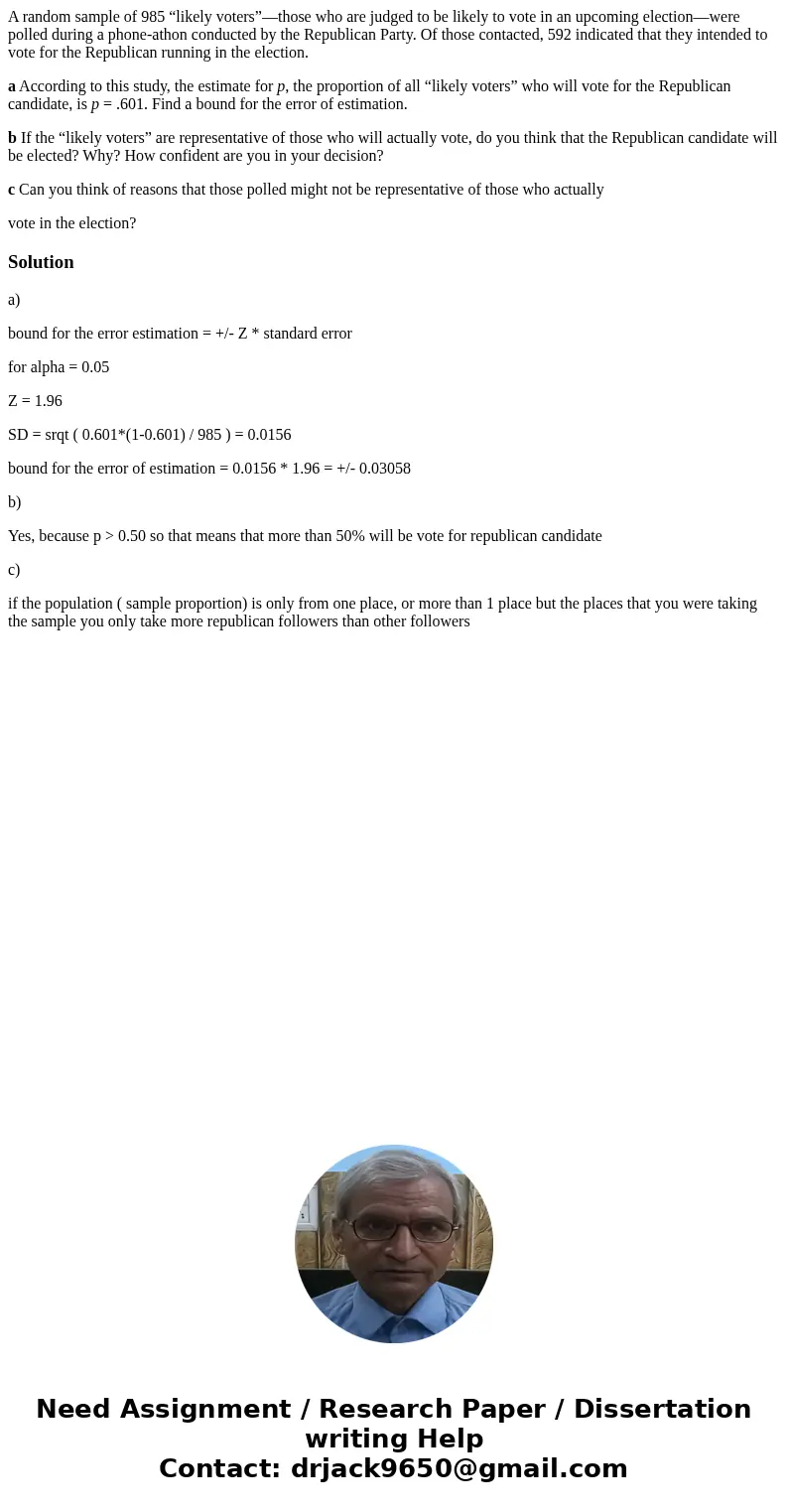A random sample of 985 likely votersthose who are judged to
A random sample of 985 “likely voters”—those who are judged to be likely to vote in an upcoming election—were polled during a phone-athon conducted by the Republican Party. Of those contacted, 592 indicated that they intended to vote for the Republican running in the election.
a According to this study, the estimate for p, the proportion of all “likely voters” who will vote for the Republican candidate, is p = .601. Find a bound for the error of estimation.
b If the “likely voters” are representative of those who will actually vote, do you think that the Republican candidate will be elected? Why? How confident are you in your decision?
c Can you think of reasons that those polled might not be representative of those who actually
vote in the election?
Solution
a)
bound for the error estimation = +/- Z * standard error
for alpha = 0.05
Z = 1.96
SD = srqt ( 0.601*(1-0.601) / 985 ) = 0.0156
bound for the error of estimation = 0.0156 * 1.96 = +/- 0.03058
b)
Yes, because p > 0.50 so that means that more than 50% will be vote for republican candidate
c)
if the population ( sample proportion) is only from one place, or more than 1 place but the places that you were taking the sample you only take more republican followers than other followers

 Homework Sourse
Homework Sourse